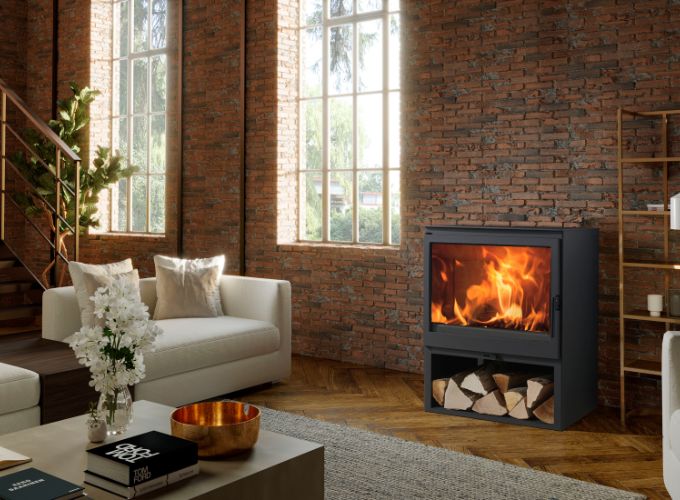
Although we enjoy the warmth of the fireplace, the odors can be unpleasant. With simple tricks like vinegar, salt, or baking soda, you can keep your home fresh and cozy.

The warmth and cosiness of a wood stove is incomparable, but its use can generate humidity in the home if the necessary precautions are not taken. Having an adequate level of humidity can help prevent problems such as dry skin, respiratory tract irritation, allergies, damage to furniture, mould and dust mites, among others. In this blog, we will look at some effective strategies to eliminate humidity in the home if you have a wood burning appliance.


Installing an exhaust fan near the chimney can be an effective solution to remove excess moisture. These extractors help to remove combustion gases and moisture from indoor air, preventing them from accumulating in the house. Be sure to keep the extractor clean and in good working order.
Ventilation is key when using a wood stove. Make sure you have a clean and clear chimney and flues. This will allow combustion gases and excess moisture to be properly evacuated to the outside of the house. In addition, it is recommended that you open the vent or use a venting system to allow fresh air to flow inside and maintain a proper balance.
Ensure that windows are properly sealed, doors are not leaking and areas around the stove are properly sealed.
Use a hygrometer to monitor the relative humidity levels in your home. Ideally, it should be between 30% and 50%. If levels are higher, consider using a dehumidifier to remove excess moisture from the air. This will help prevent condensation and mould growth.
Keep your wood stove and ventilation system in good working order by regular maintenance. Regularly clean and check the chimney, flues and exhaust fan. Also check the sealing around the stove to prevent moisture leaks.
It should be noted that you should open the windows of your home on a daily basis. Ventilating and keeping all rooms clean is very important both for dampness and to combat the typical closed odour. Follow the tips above and enjoy all the benefits of your wood stove without worrying about damp in your home.
Finally, remember that in a house that uses a wood stove, the most important thing is to have good ventilation. In addition, it is advisable to use adequate ventilation systems, such as exhaust fans and ventilators, and to ensure that the house is well insulated to prevent the entry of external moisture. Regular monitoring of humidity levels and carrying out necessary repairs in the home are also important practices to prevent moisture-related problems. As a last option, it is advisable to use a dehumidifier when the relative humidity in the home is above 50-55%.
If you have any questions, please feel free to ask us! We hope this post has served as a guide. Take a look at our blog and find solutions and recommendations to help you with your fireplace or wood stove.
Visit our online store for Panadero wood stoves. If you have any questions or need help choosing the right stove, don’t hesitate to contact us. We will be happy to help you.
Articles of interest:
Did you like this article? If so, help us spread it 😊 . Click on the buttons below here and feel free to share it on your social networks!
Thank you for reading!
↓ ↓ ↓ ↓

Although we enjoy the warmth of the fireplace, the odors can be unpleasant. With simple tricks like vinegar, salt, or baking soda, you can keep your home fresh and cozy.

How to avoid dust in the house when using a wood stove: tips and tricks for a clean and healthy home

Learn how to remove mould from your wood for use by following the steps in this article.

All you need to know: what it is, uses and benefits of wood stoves
To provide the best experiences, we use technologies such as cookies to store and/or access device information. Consenting to these technologies will allow us to process data such as browsing behavior or unique identifiers on this site. Not consenting or withdrawing consent may adversely affect certain features and functions.

From December 19 to January 6, order a wood stove and receive the Helix log holder for free.